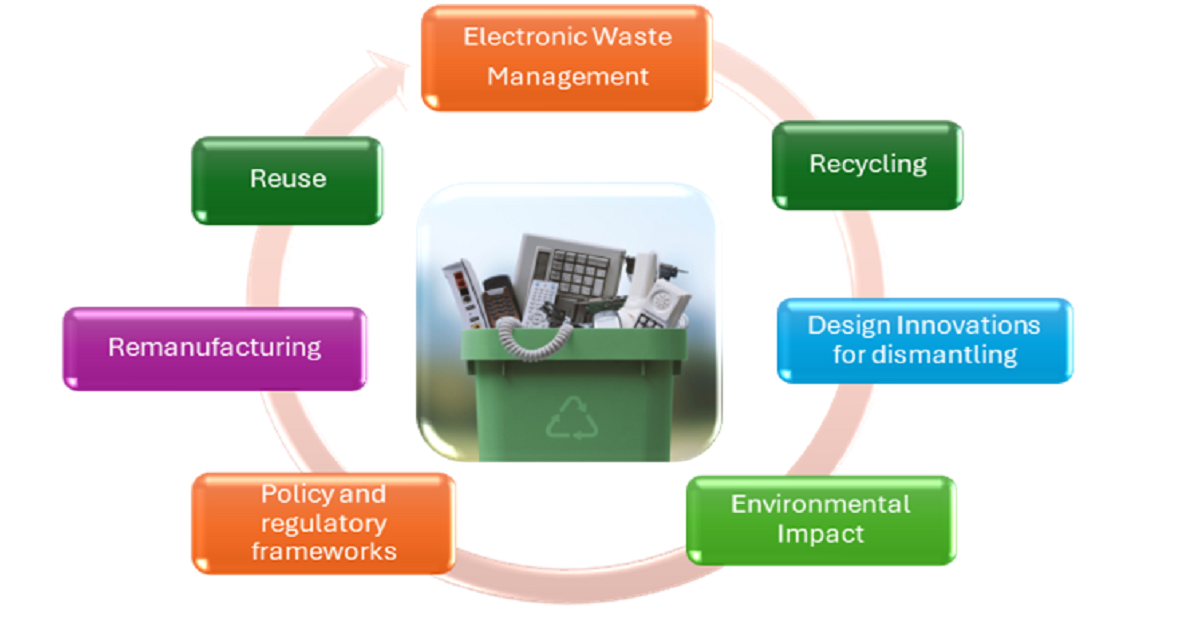Sustainable Resource Utilization and Management of Electronic Waste: Innovations, Challenges, and Future Directions
A special issue of Sustainability (ISSN 2071-1050). This special issue belongs to the section "Waste and Recycling".
Deadline for manuscript submissions: 15 July 2026 | Viewed by 2635

Special Issue Editors
Interests: solid waste management; waste valorization; biomass waste; resource recovery; circular economy; zero waste; electric and electronic waste; electric vehicle waste batteries; photovoltaic waste; sustainable resource utilization of solid waste; recycling
Special Issues, Collections and Topics in MDPI journals
Special Issue Information
Dear Colleagues,
We invite you to contribute to the upcoming Special Issue, “Sustainable Resource Utilization and Management of Electronic Waste: Innovations, Challenges, and Future Directions”, of Sustainability. This Special Issue will consider the challenges related to managing electronic waste or e-waste, one of the fastest growing waste streams. As the global demand for electronic products continues to grow, addressing complex issues regarding e-waste management through sustainable strategies has become an urgent priority. E-waste management can have a significant positive economic impact, as it reduces production costs, generates profits from recycling and reusing valuable materials and components, reduces disposal costs, avoids fines, and promotes resource sustainability.
This Special Issue will explore innovative approaches to e-waste recycling, materials recovery, circular economy models, and policy frameworks that promote environmental sustainability and sustainable resource recovery. We welcome original research articles, review articles, and case studies that highlight advances in this subject.
Dr. Eleni Kastanaki
Dr. Giin Yu Amy Tan
Guest Editors
Manuscript Submission Information
Manuscripts should be submitted online at www.mdpi.com by registering and logging in to this website. Once you are registered, click here to go to the submission form. Manuscripts can be submitted until the deadline. All submissions that pass pre-check are peer-reviewed. Accepted papers will be published continuously in the journal (as soon as accepted) and will be listed together on the special issue website. Research articles, review articles as well as short communications are invited. For planned papers, a title and short abstract (about 250 words) can be sent to the Editorial Office for assessment.
Submitted manuscripts should not have been published previously, nor be under consideration for publication elsewhere (except conference proceedings papers). All manuscripts are thoroughly refereed through a single-blind peer-review process. A guide for authors and other relevant information for submission of manuscripts is available on the Instructions for Authors page. Sustainability is an international peer-reviewed open access semimonthly journal published by MDPI.
Please visit the Instructions for Authors page before submitting a manuscript. The Article Processing Charge (APC) for publication in this open access journal is 2400 CHF (Swiss Francs). Submitted papers should be well formatted and use good English. Authors may use MDPI's English editing service prior to publication or during author revisions.
Keywords
- emerging e-waste recycling technologies
- reuse of e-waste
- advanced technologies for e-waste management
- life cycle assessment and environmental impact of e-waste management
- circular economy practices in e-waste management
- remanufacturing e-waste
- policy and regulatory frameworks for sustainable e-waste management
- socio-economic impacts of e-waste recycling
- innovations in design for dismantling and reuse
Benefits of Publishing in a Special Issue
- Ease of navigation: Grouping papers by topic helps scholars navigate broad scope journals more efficiently.
- Greater discoverability: Special Issues support the reach and impact of scientific research. Articles in Special Issues are more discoverable and cited more frequently.
- Expansion of research network: Special Issues facilitate connections among authors, fostering scientific collaborations.
- External promotion: Articles in Special Issues are often promoted through the journal's social media, increasing their visibility.
- Reprint: MDPI Books provides the opportunity to republish successful Special Issues in book format, both online and in print.
Further information on MDPI's Special Issue policies can be found here.






